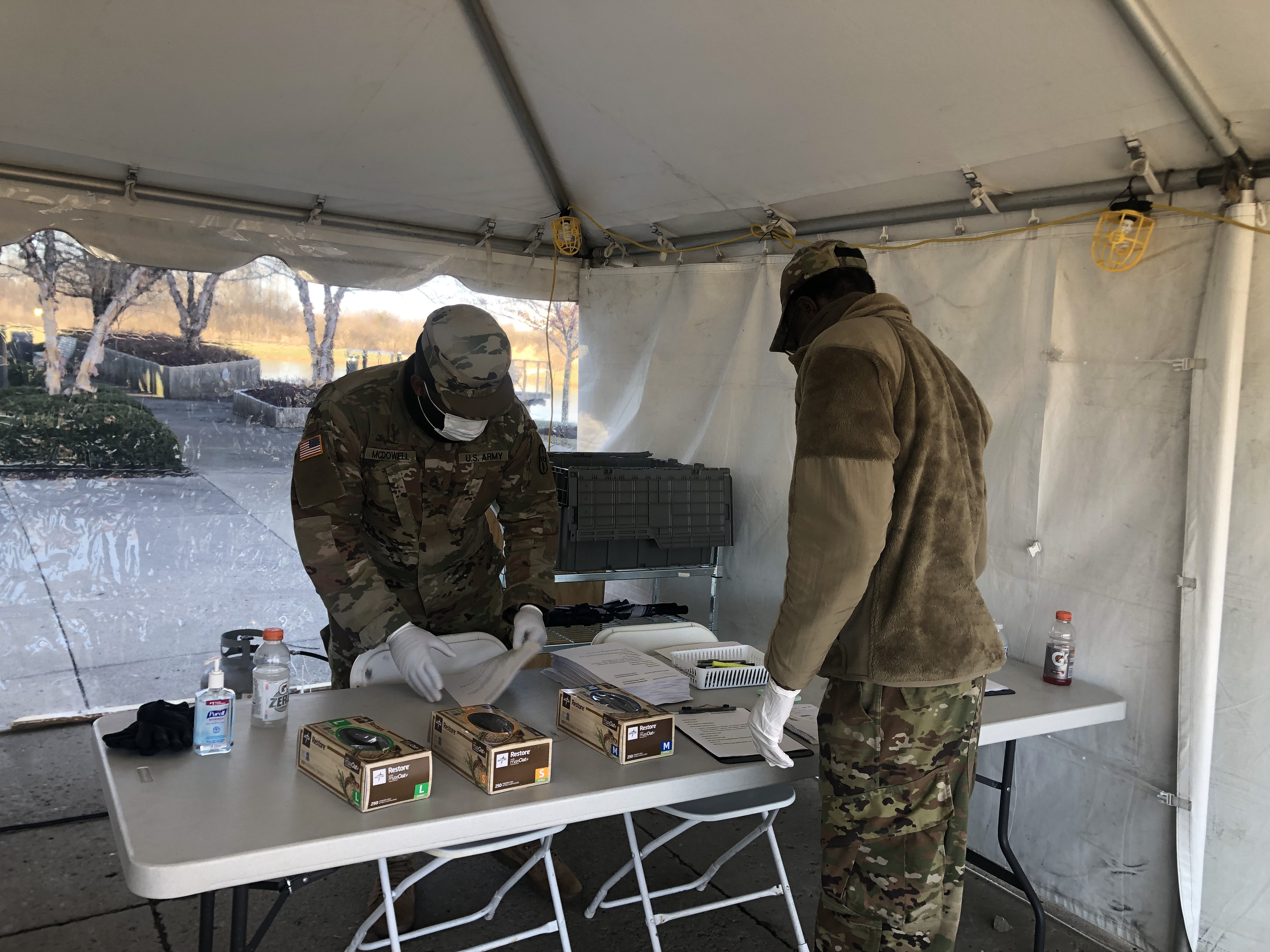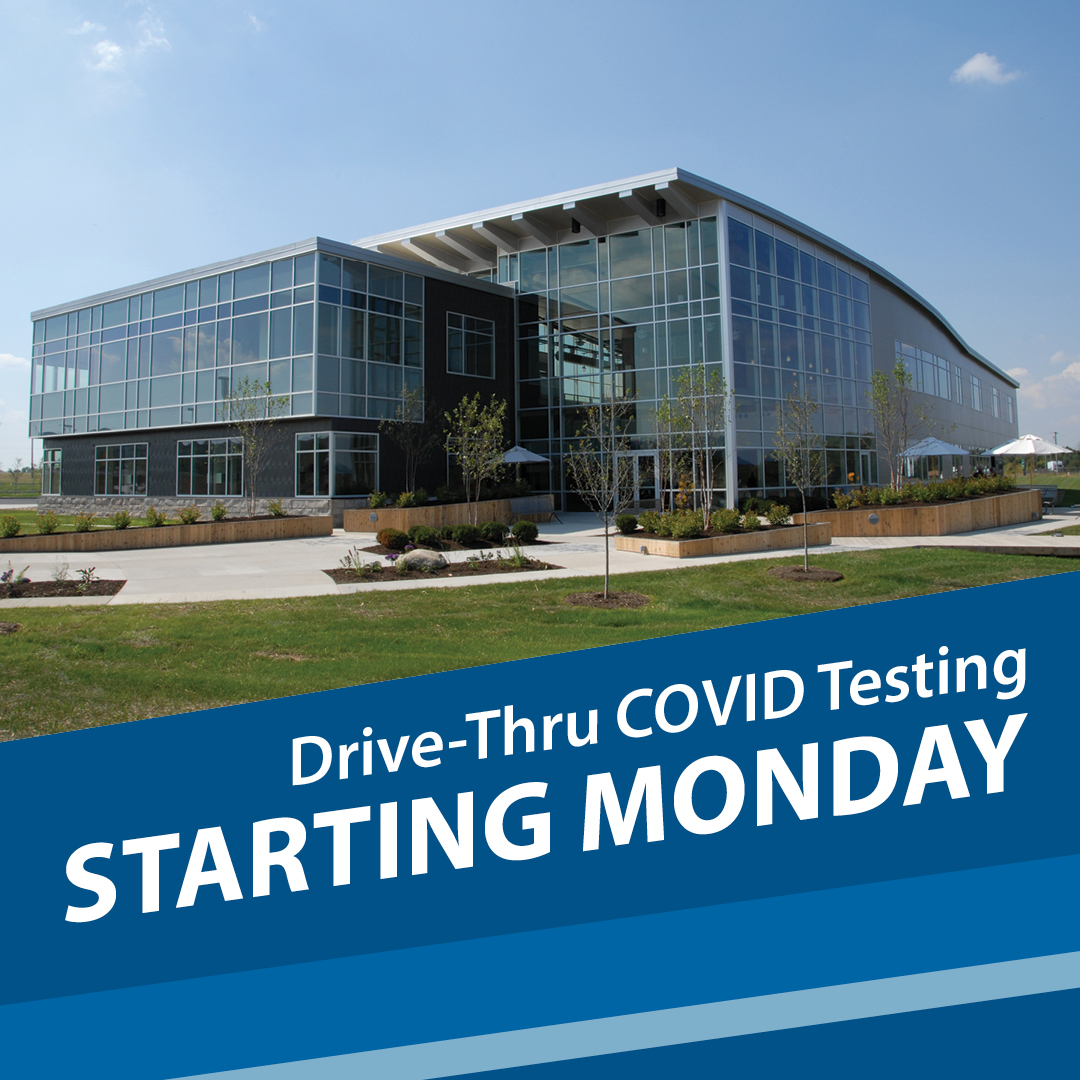If you have questions or concerns about COVID-19, we are here to help. Adena Health System has created a robust COVID-19 plan and we are responding to community needs in collaboration with our state and local health agencies.
Our focus is on the health, safety and well-being of our patients, visitors, employees, volunteers and the communities we serve. Our teams have been working tirelessly on COVID-19 efforts since the early stages of the pandemic and are always ready to respond to this ever evolving situation.
We’ve created a one-stop resource to provide you with resources and the latest information.
Visitor Policy
Learn what you need to know before visiting an Adena Health System facility.
COVID-19 Vaccination Program
Adena and health care partners across Ohio are distributing safe, effective COVID-19 vaccines.
Our COVID-19 vaccination administration is done through a number of our primary care clinics across our nine-county service region.
Coronavirus Hotline
Adena has a special Coronavirus Hotline available 24 hours a day, seven days a week to answer your questions and concerns. Dedicated hotline staff are available to speak to from 7 a.m.–7 p.m. After hours calls can expect a return call within 24 hours. The hotline number is 740-542-SAFE (7233).
COVID-19 Testing Criteria Fact Sheet
Adena follows the Ohio Department of Health’s criteria for testing people for coronavirus. We created a fact sheet to help you better understand the criteria for testing and where to turn for more information.
Virtual Visits
If you or a loved one need care and don’t want to leave your home during the pandemic, Adena offers virtual visits for new, established or post-procedural patients. Virtual visits connect a physician or advanced practice provider with you over the telephone or through video communication via computer webcam or smartphone.
You can schedule a virtual visit by contacting your provider’s office. New patients may call 740-779-FIND (3463) to schedule a virtual visit with an Adena Medical Group provider.
Frequently Asked Questions
Below are answers to frequently asked questions about COVID-19 from the Centers for Disease Control and Prevention. For the complete FAQ list, click here.
What is COVID-19?
A novel coronavirus is a new coronavirus that has not been previously identified. The virus causing coronavirus disease 2019 (COVID-19), is not the same as the coronaviruses that commonly circulate among humans and cause mild illness, like the common cold.
A diagnosis with coronavirus 229E, NL63, OC43 or HKU1 (these are commonly circulating coronaviruses) is not the same as a COVID-19 diagnosis. Patients with COVID-19 will be evaluated and cared for differently than patients with common coronavirus diagnosis.
How does the virus spread?
COVID-19 spreads when an infected person breathes out droplets and very small particles that contain the virus. These droplets and particles can be breathed in by other people or land on their eyes, noses or mouth. In some circumstances, they may contaminate surfaces they touch. People who are closer than six feet from the infected person are most likely to get infected.
COVID-19 can be spread in three ways:
- Breathing in air when close to an infected person who is exhaling small droplets and particles that contain the virus.
- Having these small droplets and particles that contain virus land on the eyes, nose or mouth, especially through splashes and sprays like a cough or sneeze.
- Touching your eyes, nose or mouth with hands that have the virus on them.
Can someone who has had COVID-19 spread the illness to others?
The virus that causes COVID-19 is spreading from person to person. Someone who is actively sick with COVID-19 can spread the illness to others. That’s why the CDC recommends that these patients be isolated either in the hospital or at home (if they are clinically stable) until they are better and no longer pose a risk of infecting others.
How long someone is actively sick can vary, so the decision on when to release someone from isolation is made on a case-by-case basis in consultation with doctors, infection prevention and control experts, and public health officials and involves considering specifics of each situation, including disease severity, illness signs and symptoms and results of laboratory testing for that patient.
Current CDC guidance for when it is OK to release someone from isolation is made on a case by case basis and includes, at a minimum, meeting all of the following requirements:
The patient is free from fever without the use of fever-reducing medications.
The patient is no longer showing symptoms, including cough.
The patient has tested negative on at least two consecutive respiratory specimens collected at least 24 hours apart.
Someone who has been released from isolation is not considered at risk of infecting others.
How can I help protect myself?
The best way to prevent illness is to avoid being exposed to the virus and by getting a COVID-19 vaccine.
The virus is thought to spread mainly from person-to-person:
Between people who are in close contact with one another (within about six feet).
Through respiratory droplets produced when an infected person coughs or sneezes.
These droplets can land in the mouths or noses of people who are nearby or possibly be inhaled into the lungs.
Take steps to protect yourself:
Clean your hands often.
Avoid touching your eyes, nose and mouth with unwashed hands.
Avoid close contact with people who are sick.
Take steps to protect others:
Stay home if you’re sick.
Cover your coughs and sneezes.
Clean AND disinfect frequently touched surfaces daily. This includes tables, doorknobs, light switches, countertops, handles, desks, phones, keyboards, toilets, faucets and sinks.
What are the symptoms of COVID-19?
Current symptoms reported for patients with COVID-19 have included mild to severe respiratory illness with fever, cough and difficulty breathing. Read more about COVID-19 symptoms.
Should I be tested for COVID-19?
Testing is dependent upon severity of symptoms and risk defined by the Ohio Department of Health. Based on symptoms, your health care provider will work with local health departments to determine testing appropriateness and guidance. The goal is to prevent transmission of respiratory illness, so please call ahead to your health care provider for guidance.
Is it safe to come to the hospital, health center or clinic for my care?
Patients should not to delay or put off seeking any type of health care for fear or worry about contracting Coronavirus. Adena, like other hospitals and health systems nationwide, is a safe place to come for care.
What is Adena doing to keep patients, visitors and employees safe?
Whether you are coming to Adena for an appointment or for a longer stay, your safety is our highest priority. Now more than ever, our physicians, advance practice providers and caregivers are ensuring the safety and well-being of our patients and
visitors. Learn more about all our enhanced cleaning and safety procedures.
Resources
To stay informed on the latest COVID-19 updates and developments, visit:
- Centers for Disease Control and Prevention
- Ohio Department of Health
- Ross County Health District
- United Way of Ross County 2-1-1
Coronavirus (COVID-19) Update
.webp?sfvrsn=264a6912_4)

